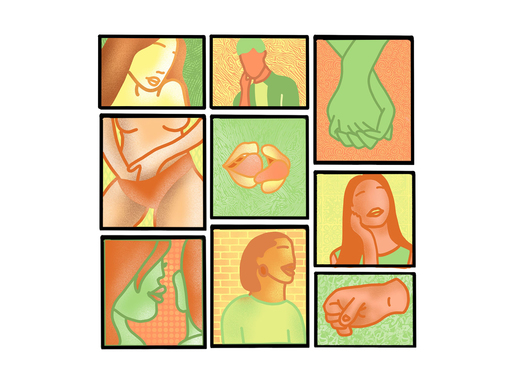
Meet the people who are campaigning for changes to the current sex-ed curriculum
When most people think of the sex education they received in school, it is less than adequate. Vague explanations of reproduction and horrifying images of STIs that are enough to put you off having sex altogether come to mind. So many essential elements are never discussed in classrooms: issues of consent, pleasure, and non-cis-het relationships, to name a few.
After the not-so-shocking statistic that 97 percent of women have been sexually harassed emerged this year, Nimue Miles, 18, was inspired to campaign for more sufficient sex education in schools, especially relating to consent. She told us: “I knew there were issues with the sex education system already, but that statistic made me want to go to the root of the problem. To me, education is the perfect way of doing that.” She set up a petition, which is currently at nearly 40,000 signatures.
Like many, Miles felt that her sex education at school was less than adequate. She said: “I have just come out of education myself, and my experiences were really poor. I know a lot of other people who have said the same thing, including teachers and parents.”
There are many things the current sex education curriculum doesn’t address, including body diversity, transgender experiences, pornography and sexualities other than heterosexuality. It’s very scientific, and not open or honest; we all just see the same cup of tea video on consent and that’s not good enough,” she added.
Nimue believes that teaching consent in school is an important step to tackling rape culture, and that this teaching should start earlier than secondary school. She said: “When you get to the age of 16/17, it’s too late because sexist behaviours have already started to develop as we have already been exposed to things such as porn.”
Sex-ed is pushed aside, and it isn’t prioritised as much as other subjects such as Maths and English, it’s arguably more important,” she added.
We all just see the same cup of tea video on consent and that’s not good enough
The lack of focus on pleasure in sex education is also something that is dramatically absent in the curriculum. Somatic sex therapist Rebecaa Lowrie said: “If you think about sex education, its usually about ‘don’t get pregnant’ or ‘you’ll get a disease’ – nothing about pleasure or what sex is really for.”
Author and teacher of 20 years Sue Bordley decided to write her own book, XY,Z, in order to educate young people on relationships, sex, contraception and everything in between. She said “If young people have questions about physical relationships, someone needs to provide them with a better alternative.”
“In the book, I describe sex scenes in detail, but I’m also realistic about it and put an emphasis on respect within the relationship, especially when describing the couple’s first time.”
Bordley felt that sex education should be prioritised more on the curriculum, especially areas like consent and emotion. She said: “I think it definitely needs to be discussed more in schools. When I was in school myself I just got a biology lesson, nothing about consent or contraception. I think emotional education is important as well; making sure students are aware that its okay to not have sex if they don’t want to.”
In XY,Z, Bordley priortises emotional well being in a relationship rather than just sex. She said: “I wanted to send a message to young girls that they should never accept being treated as anything less than equal in a relationship; that they should only be in relationships that contribute to their wellbeing and make them happy. Otherwise, what’s the point?”
